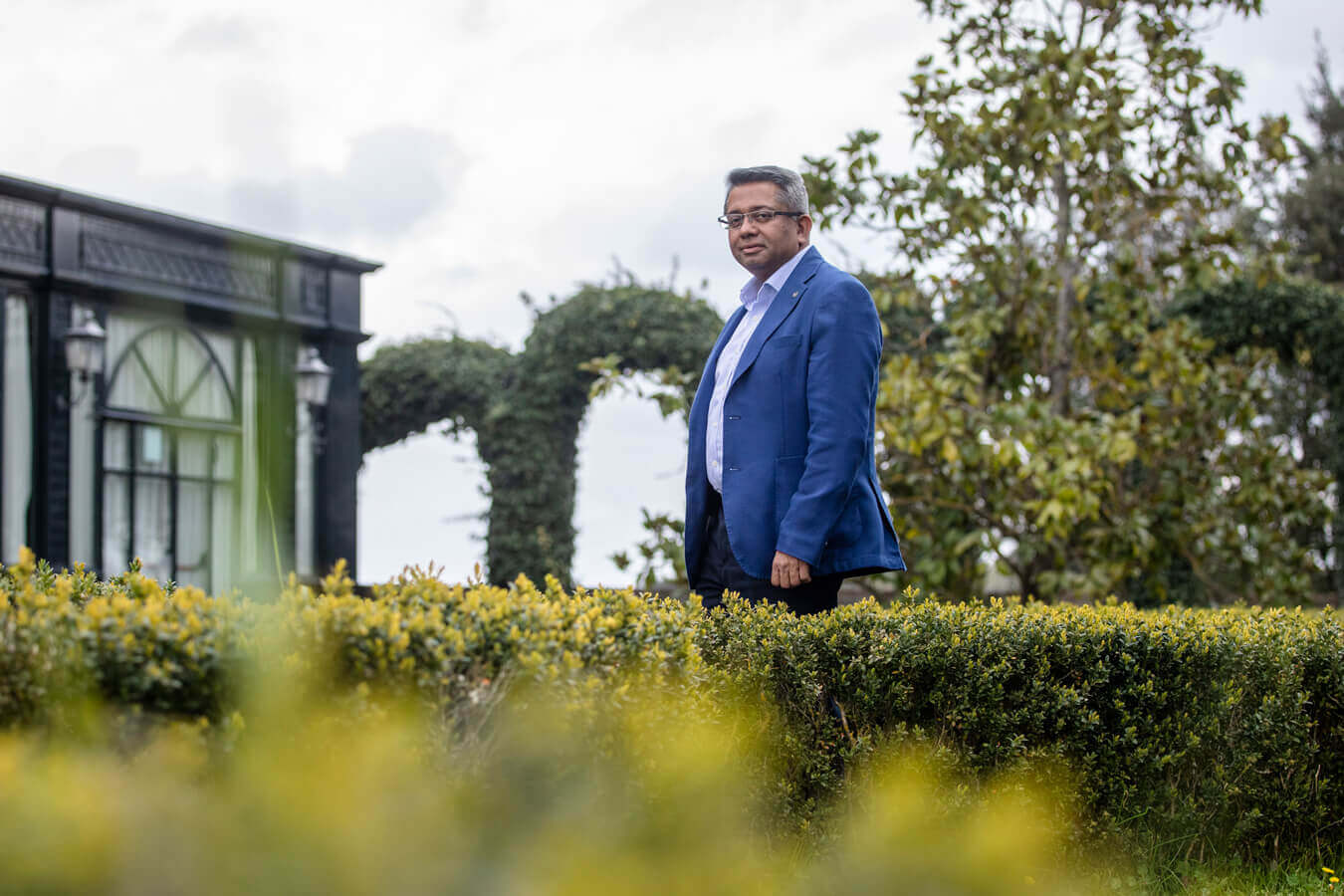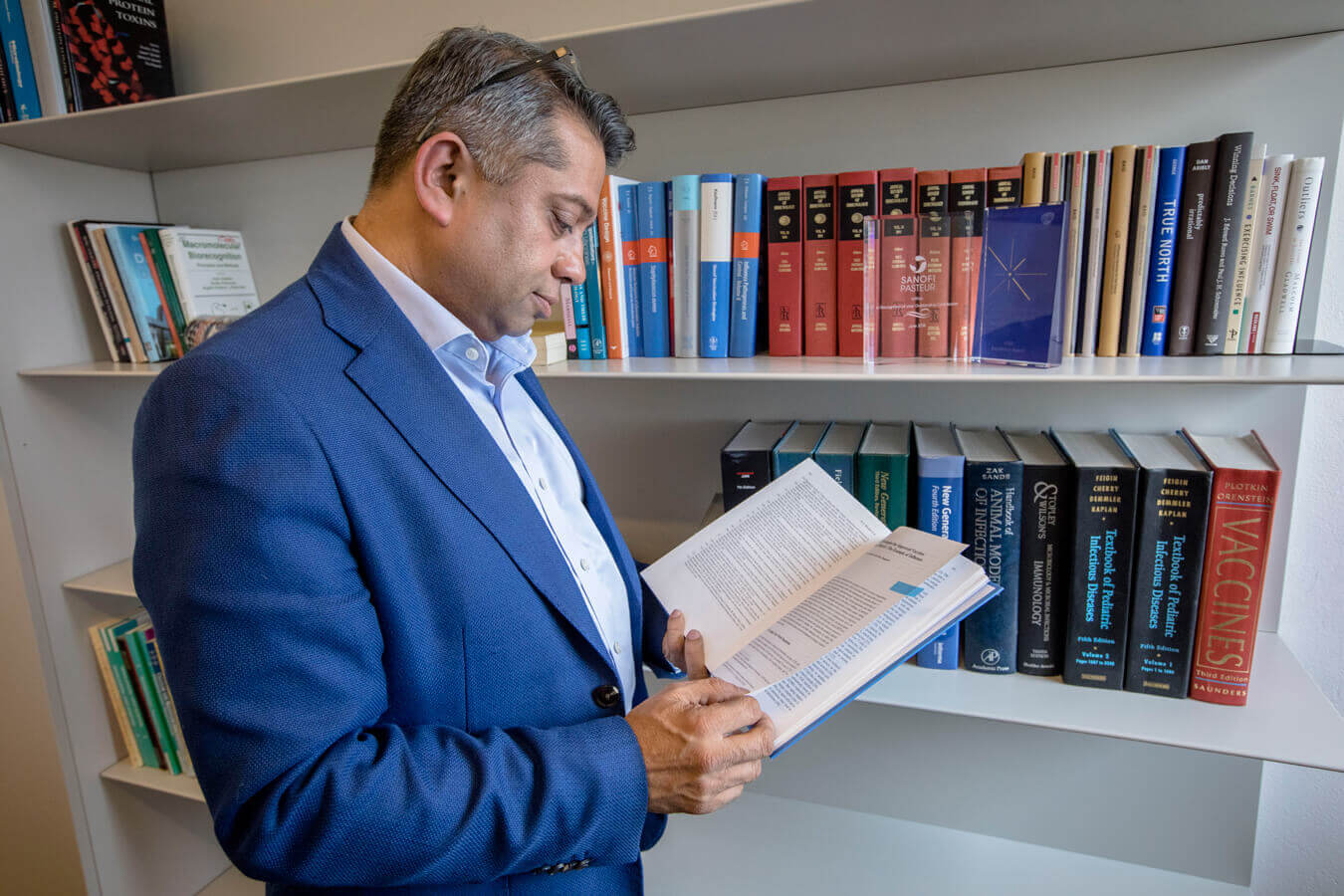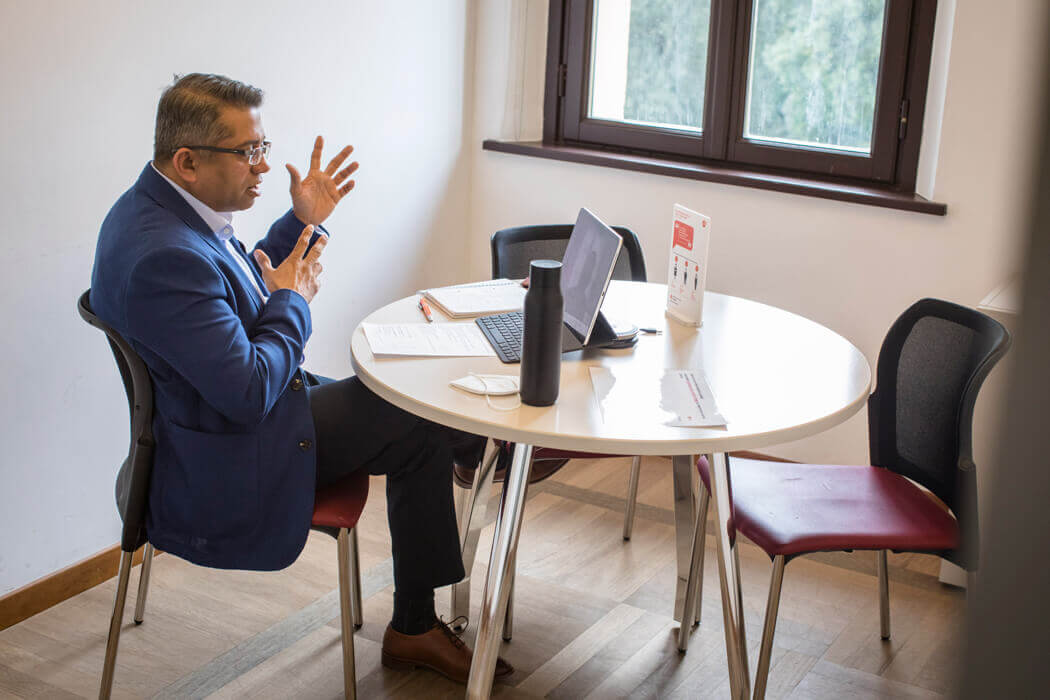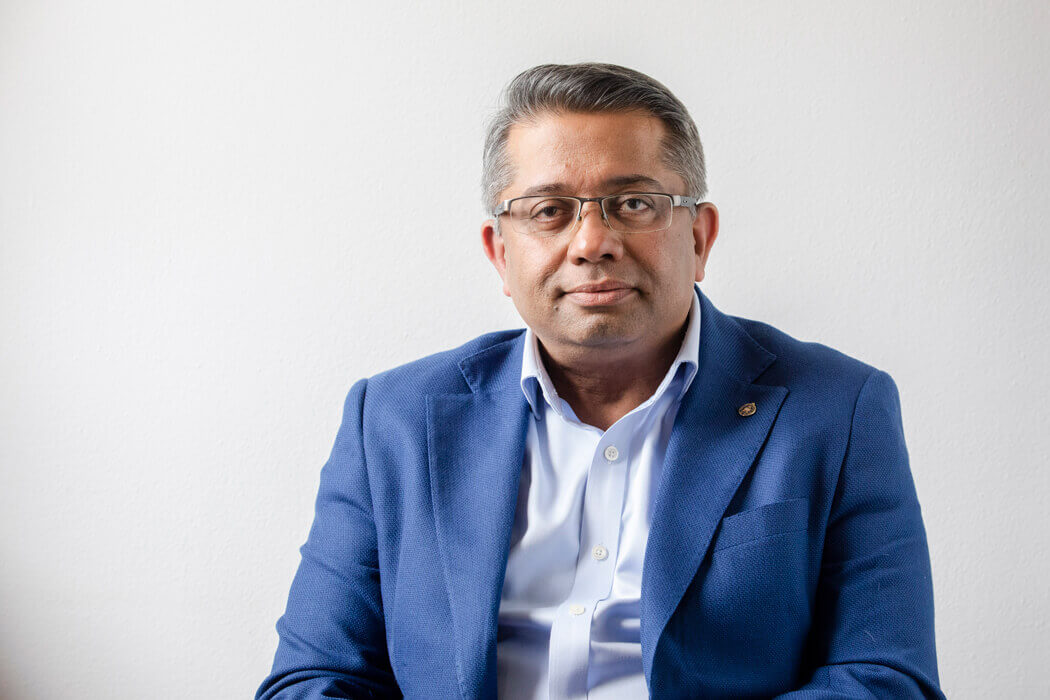#TeamVaccines
Sanjay’s Story
Vaccines Research & Development
I’m Sanjay and I work in the research and development of vaccines. I’m also a cancer survivor, which is where this story begins.
In 2004, I heard the words nobody wants to hear: ‘it’s cancer’. Stage 4 oesophageal cancer, and I only had a few days left to live. Thankfully, I started chemotherapy immediately. And against all odds, I survived.
At the time, I wasn’t just afraid of cancer. I was also worried about other infections - something chemo made me much more susceptible to. Antibiotics kept me safe, letting my body focus on fighting off the cancer. But now some of those very same antibiotics are under threat.


Why are antibiotics under threat and why is it a problem?
When bacteria change and become resistant to antibiotics, it’s known as antimicrobial resistance, or ‘AMR’. AMR is a serious threat to our global health. In 2019, more than 1.2 million people died from infections caused by antibiotic-resistant bacteria [1]. That’s more than malaria or HIV [1].
Although it happens naturally, the more we use antibiotics, the faster AMR bacteria develop and spread. Thus antibiotics become less effective over time and it becomes harder to treat infections.
If effective antibiotics aren’t available, bacterial infections can get quite dangerous - even life-threatening - for patients. The threat is especially high during chemotherapy, caesarean sections or common surgeries like hip replacements, where patients are more vulnerable to infections and rely on antibiotics to keep them protected.
Because of infection with resistant bacteria, people may stay in the hospital longer and have worse outcomes. Long hospital stays heighten the risk of catching further infections, and AMR can produce bacterial ‘superbugs’ (fast spreading infections that don’t respond to antibiotics) both in hospitals and in our communities.
How could vaccines help to slow AMR?
Using antibiotics only when medically necessary can help to delay resistance. Plus, vaccines - like the Haemophilus Influenza type B (HiB) or the pneumococcal vaccine [2] - can help slow AMR’s impact by preventing some bacterial infections in the first place, thus slowing the emergence of these so-called “superbugs”.


What I hope to see
I’ve been in remission for 10 years now. I’ve spent much of that time working in the world of vaccines, helping to prevent infections and decreasing the need for antibiotics in the first place.
Vaccines can help keep our loved ones safe, as well as protecting our healthcare systems.
I believe that we shouldn't just be ‘reactive’ when it comes to healthcare. There’s still time to protect people from AMR. So, I’m determined - and proud - to play my part in developing new vaccines that could contribute to our fight against AMR in the future.
Read next story